What is the Government’s anti-strike bill and who will it affect?
PHOTO ESSAY
Seren Morris and Nuray Bulbul
Tue, 21 February 2023
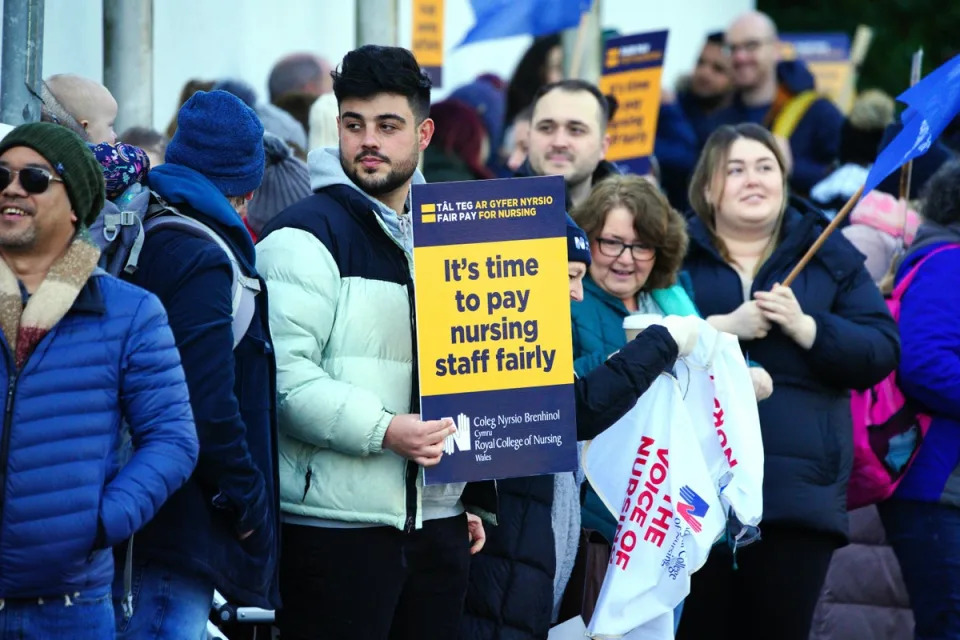
The bill comes amid ongoing strike action across several industries, including health (Ben Birchall / PA)
Feminist campaign groups have raised concerns about the Government’s anti-strike bill, saying women’s rights would be disproportionately affected by the restrictions.
Four feminist organisations and the (Trades Union Congress) TUC have written to the equalities minister Kemi Badenoch, saying that public sectors with majority female workforces, including health and education, would have their rights impacted by the bill.
The bill, which is expected in the House of Lords on Tuesday, would give the Government the power to enforce minimum levels of service during industrial action. Employers would also consult unions on what that means in practice.
Bosses would be legally able to fire employees who ignore a “work notice” ordering them to work on strike days, a change unions have said breaches fundamental rights.
“This draconian legislation will mean that when workers democratically and lawfully vote to strike across a range of sectors — including health and education which have a predominantly female workforce — they can be forced to work and sacked if they don’t comply,” the letter said.
It was signed by the Fawcett Society, Pregnant Then Screwed, the Equality Trust, the Women’s Budget Group and the TUC.
“In an already-challenging labour market rife with discrimination, the last thing working women need is to be threatened with the sack for exercising their democratic right to strike and for trying to defend their pay and working conditions — especially in a cost of living crisis,” the groups added.
What is the anti-strike bill?
The draft Strikes (Minimum Service Levels) Bill was in January introduced to Parliament by the Energy Security Secretary Grant Shapps.
It comes amid ongoing strikes across several industries, including transport, health, and education. Firefighters and postal workers have also walked out.
The thresholds for launching industrial action are expected to be raised and companies may be able to sue unions if minimum service levels are not met.
Seren Morris and Nuray Bulbul
Tue, 21 February 2023

The bill comes amid ongoing strike action across several industries, including health (Ben Birchall / PA)
Feminist campaign groups have raised concerns about the Government’s anti-strike bill, saying women’s rights would be disproportionately affected by the restrictions.
Four feminist organisations and the (Trades Union Congress) TUC have written to the equalities minister Kemi Badenoch, saying that public sectors with majority female workforces, including health and education, would have their rights impacted by the bill.
The bill, which is expected in the House of Lords on Tuesday, would give the Government the power to enforce minimum levels of service during industrial action. Employers would also consult unions on what that means in practice.
Bosses would be legally able to fire employees who ignore a “work notice” ordering them to work on strike days, a change unions have said breaches fundamental rights.
“This draconian legislation will mean that when workers democratically and lawfully vote to strike across a range of sectors — including health and education which have a predominantly female workforce — they can be forced to work and sacked if they don’t comply,” the letter said.
It was signed by the Fawcett Society, Pregnant Then Screwed, the Equality Trust, the Women’s Budget Group and the TUC.
“In an already-challenging labour market rife with discrimination, the last thing working women need is to be threatened with the sack for exercising their democratic right to strike and for trying to defend their pay and working conditions — especially in a cost of living crisis,” the groups added.
What is the anti-strike bill?
The draft Strikes (Minimum Service Levels) Bill was in January introduced to Parliament by the Energy Security Secretary Grant Shapps.
It comes amid ongoing strikes across several industries, including transport, health, and education. Firefighters and postal workers have also walked out.
The thresholds for launching industrial action are expected to be raised and companies may be able to sue unions if minimum service levels are not met.
Ambulance Strike | January 2023

(PA)

(PA)

(PA)

(PA)

(PA)

(PA)

(PA)

(PA)
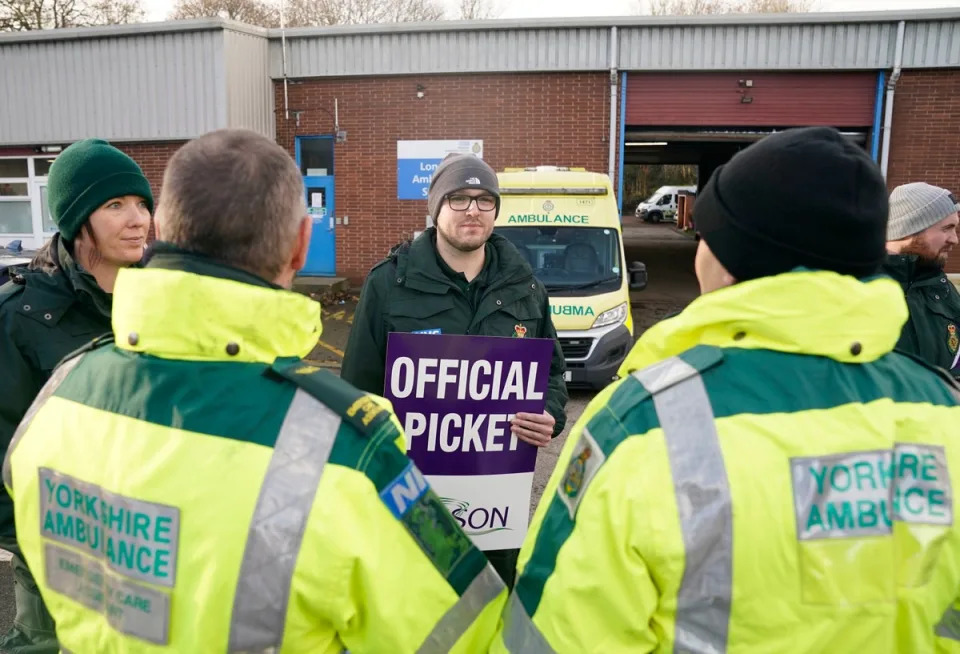
(PA)
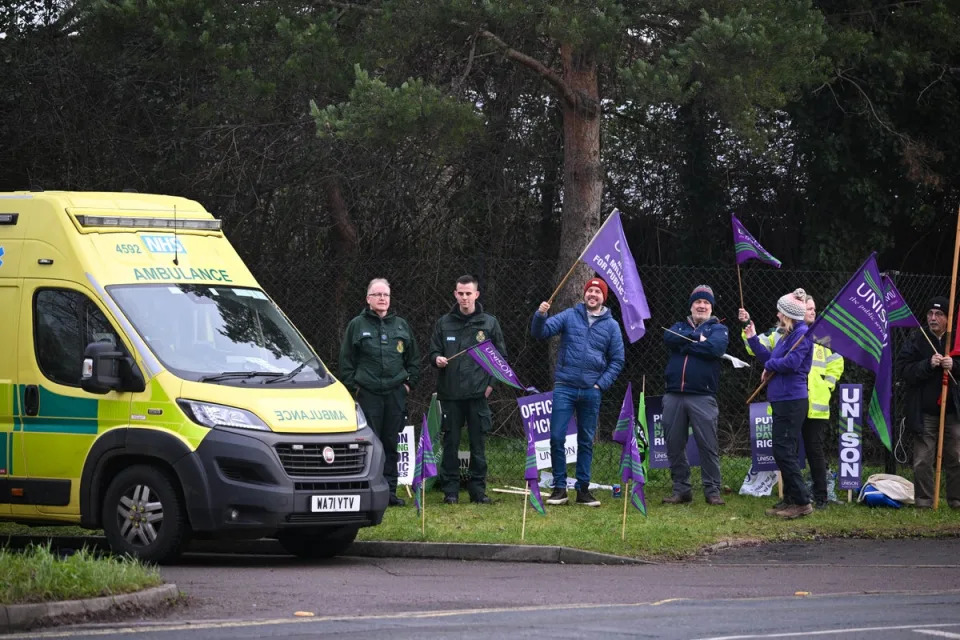
(Getty Images)

(PA)
What powers will employers have if the bill passes?
Employers would be able to restrict the protection of trade unions from legal action, such as unfair dismissal.
They would also be able to require that “minimum service levels” are delivered during strike action.
The bill would restrict workers' rights’ to withhold labour legally, making it difficult to strike.
Who would the anti-strike bill affect?
The bill would require employees in the following industries to provide “minimum service levels”:
Health services
Fire and rescue services
Education services
Transport services
Decommissioning of nuclear installations and management of radioactive waste and spent fuel
Border security
Employers would be able to restrict the protection of trade unions from legal action, such as unfair dismissal.
They would also be able to require that “minimum service levels” are delivered during strike action.
The bill would restrict workers' rights’ to withhold labour legally, making it difficult to strike.
Who would the anti-strike bill affect?
The bill would require employees in the following industries to provide “minimum service levels”:
Health services
Fire and rescue services
Education services
Transport services
Decommissioning of nuclear installations and management of radioactive waste and spent fuel
Border security
Nurses strike | December 2022

(PA)

(Jeremy Selwyn)
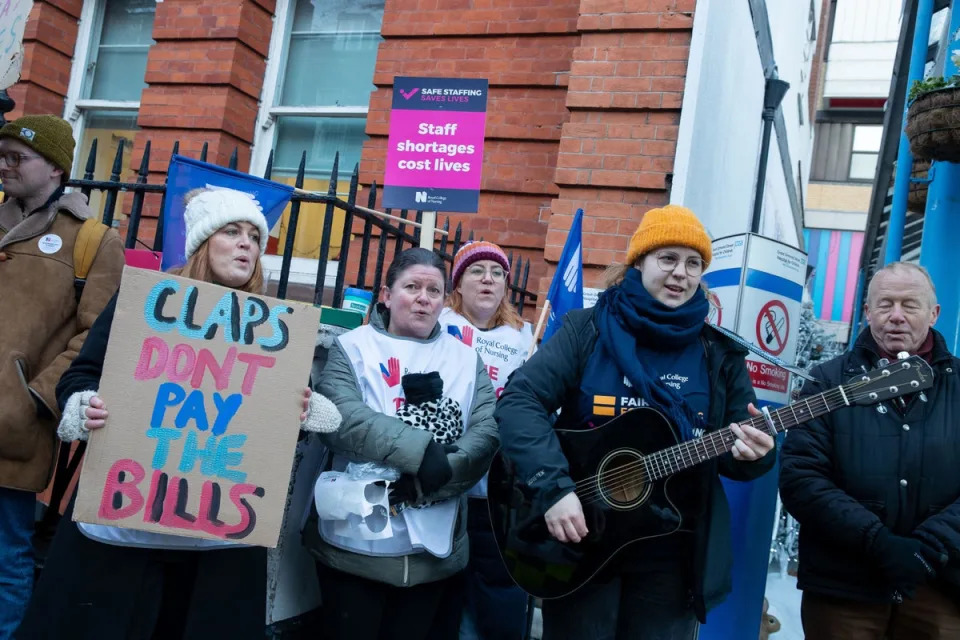
(PA)
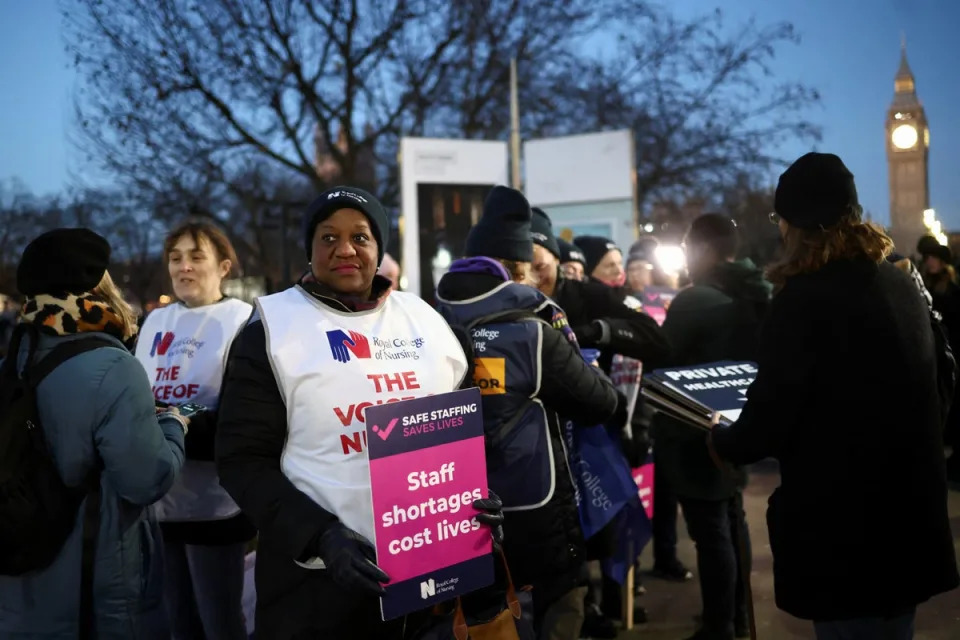
(REUTERS)

(PA)

(Jeremy Selwyn)
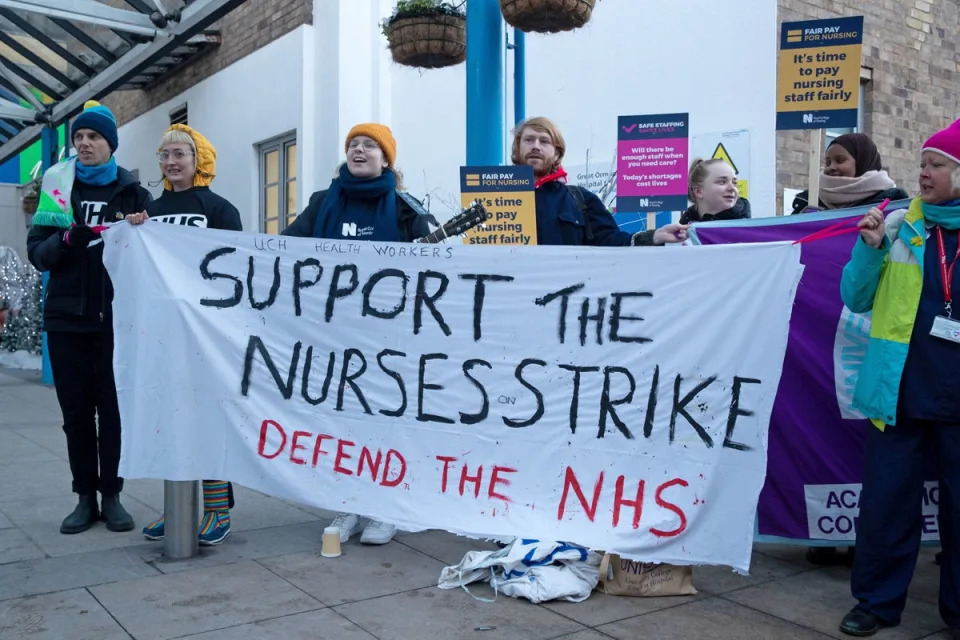
(PA)

(PA)

(PA)
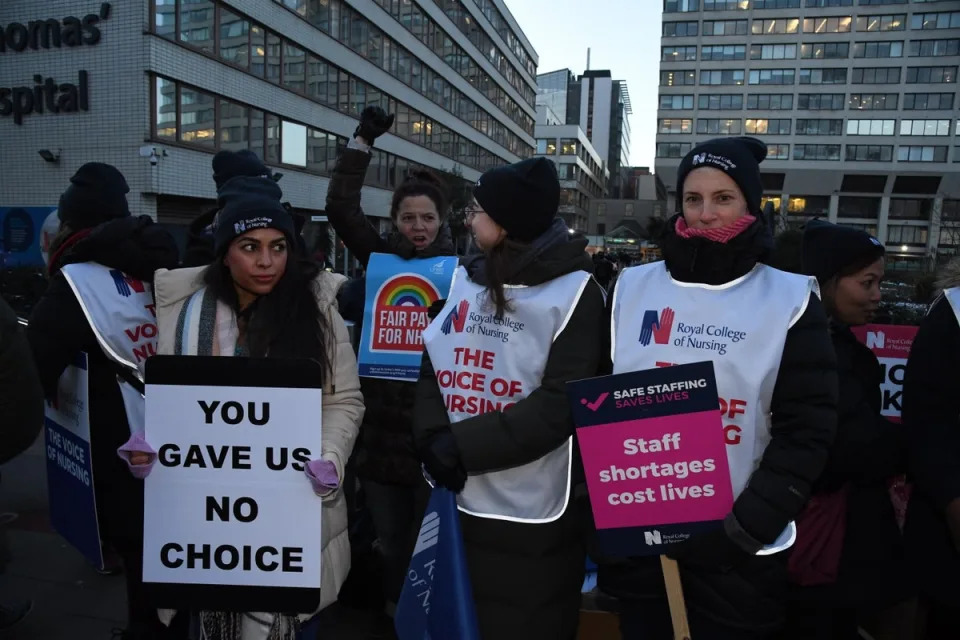
(Jeremy Selwyn)

(PA)
What has Grant Shapps said about the bill?
When introducing the bill in Parliament, Mr Shapps said: “The Government has a duty to protect the public’s access to essential public services. Because whilst we absolutely believe in the right to strike, we’re duty-bound to protect the lives and the livelihoods of the British people.”
He continued: “So I’m introducing a bill that would give the Government the power to ensure that vital public services will have to maintain a basic function by delivering minimum safety levels, ensuring that lives and livelihoods are not lost.”
How have unions responded to the bill?
The Public and Commercial Services union said it was “working with fellow trade unions and the TUC in fighting against this legislation”.
The National Union of Rail, Maritime and Transport Workers (RMT) general secretary Mick Lynch said the bill was “an attack on human rights and civil liberties”.
UK: Train Strike | December 2022

Passengers view departure boards at Kings Cross station in London (PA)
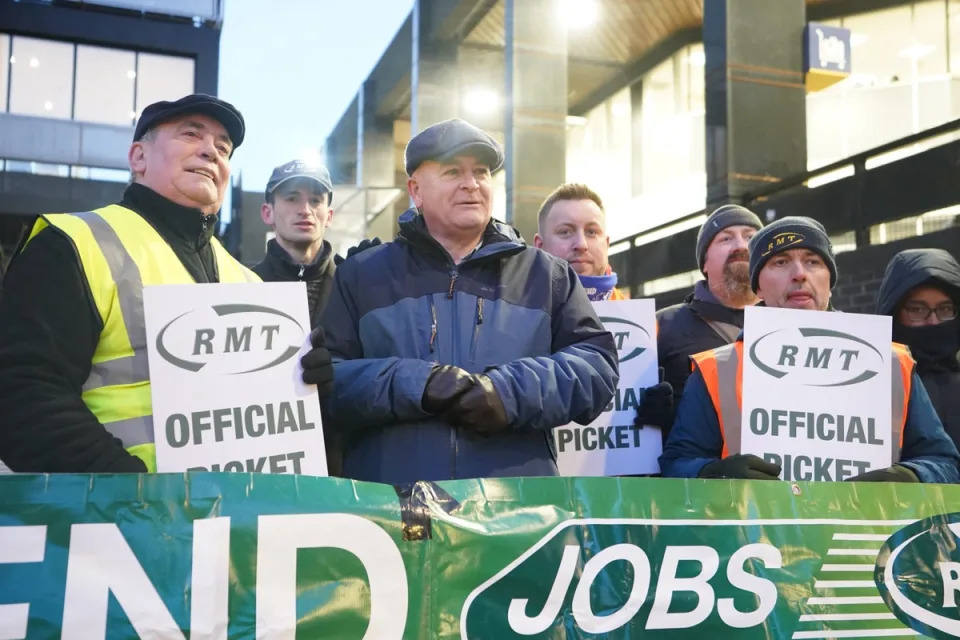
Mick Lynch (centre) general secretary of the Rail, Maritime and Transport union (RMT) joins members on the picket line outside London Euston train station during a strike in a long-running dispute over jobs and pensions (PA)

Passengers view departure boards at Kings Cross station in London (PA)

A man with suitcases at an empty Paddington station (PA )

A man looks at the departures board at Euston train station in London (PA)
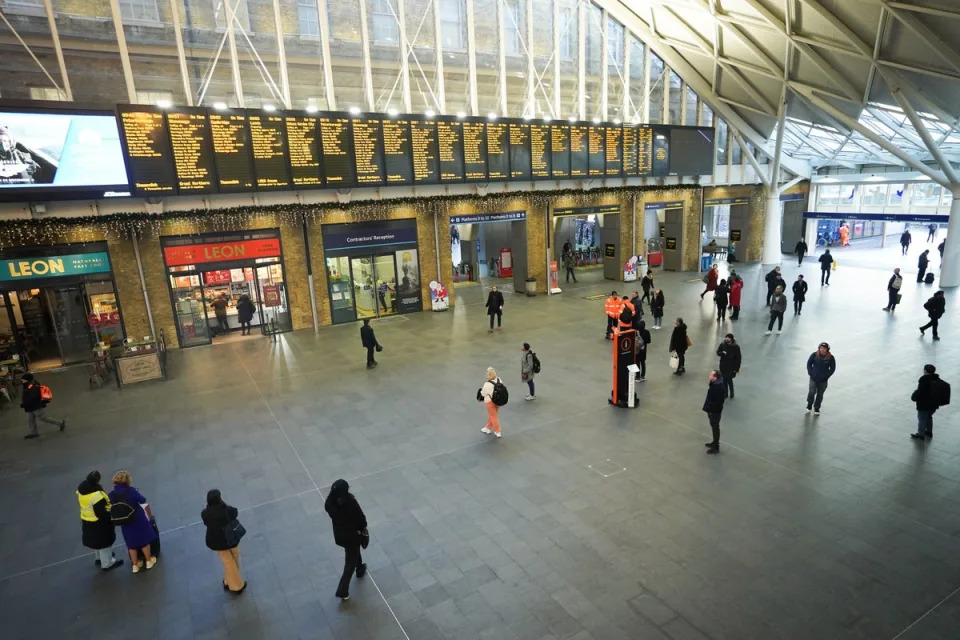
Passengers view departure boards at Kings Cross station in London (PA)

Waterloo Station (Jeremy Selwyn)
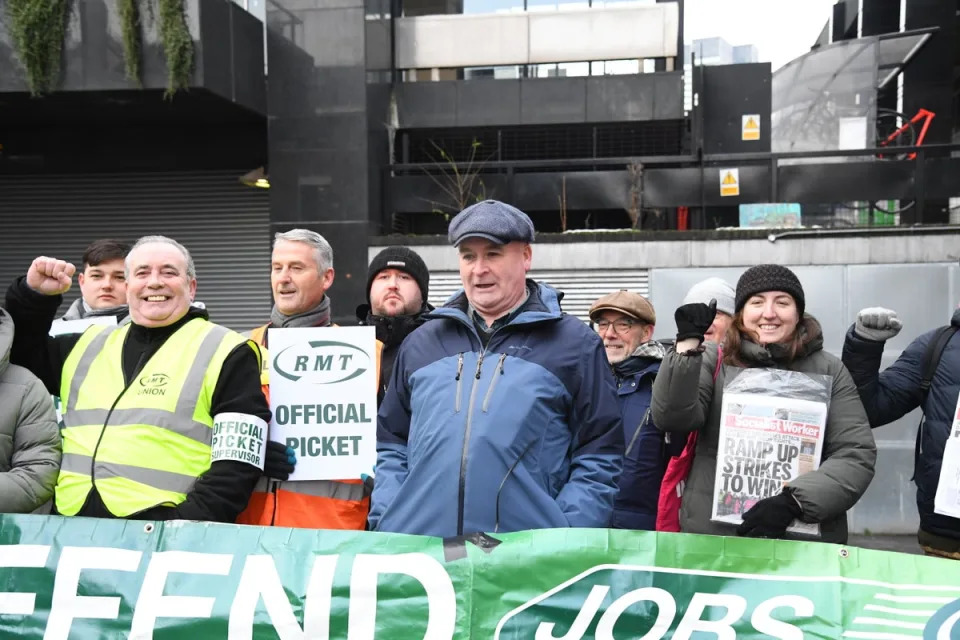
Mich Lynch (Jeremy Selwyn)
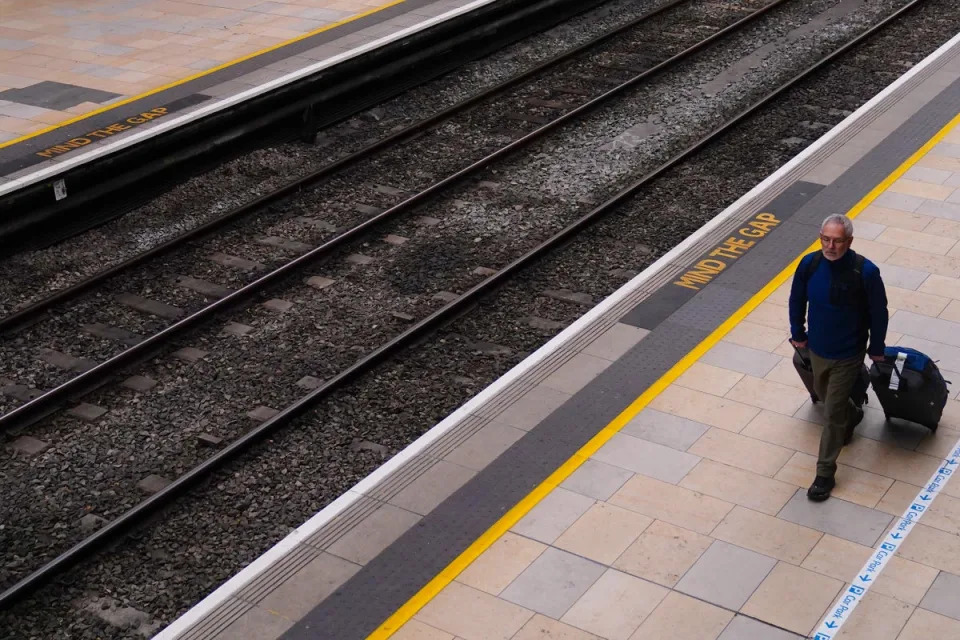
A man with suitcases at an empty Paddington station (PA)

Euston Station (Jeremy Selwyn)
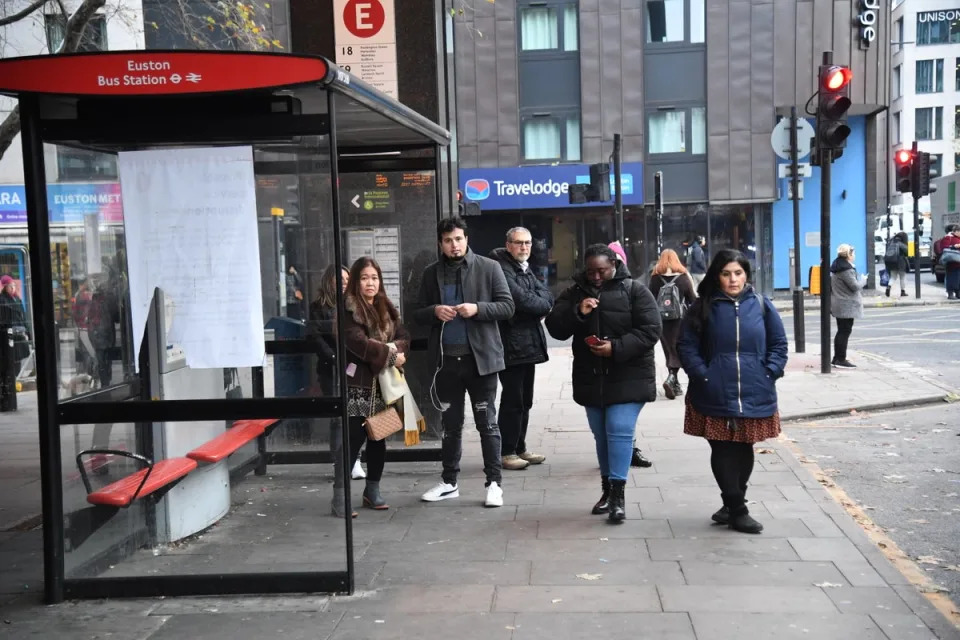
Euston Station (Jeremy Selwyn)
In a statement, he said: “The only reason this draconian legislation is being introduced is because the Government has lost the argument and wants to punish workers for having the temerity to demand decent pay and working conditions.
“The Government’s own impact assessment of minimum service levels shows it wouldn’t work. They would be better off coming to a negotiated settlement with unions through dialogue.”
Mick Whelan, the Associated Society of Locomotive Engineers and Firemen (Aslef’s) general secretary, said: “Rishi Sunak, rather than doing the decent thing — the right thing — and negotiating with us, is trying to prevent thousands of workers from being able to withdraw their labour.
Royal Mail Strike: Parliament Square London

(PA)
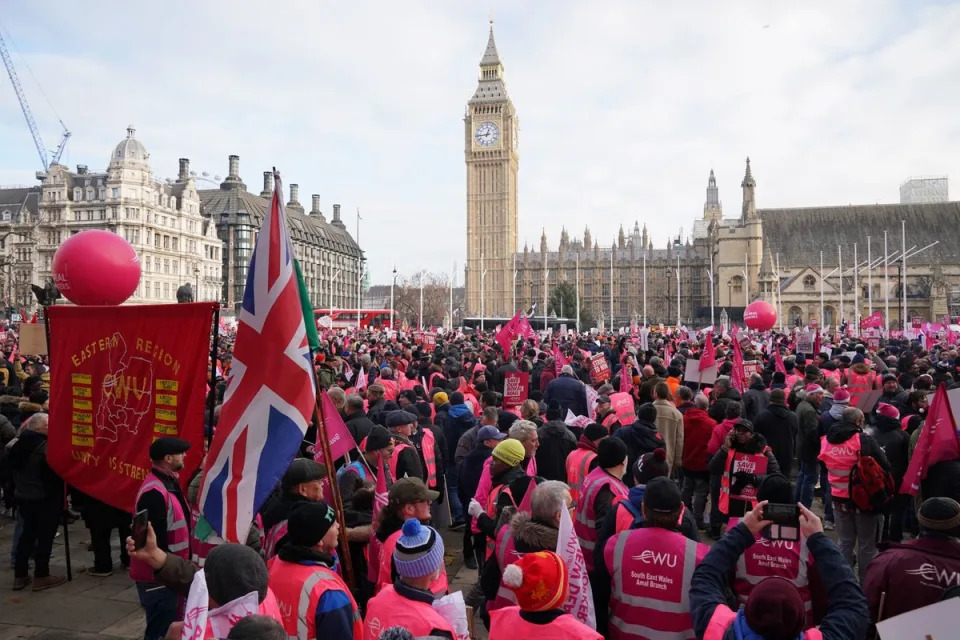
(PA)
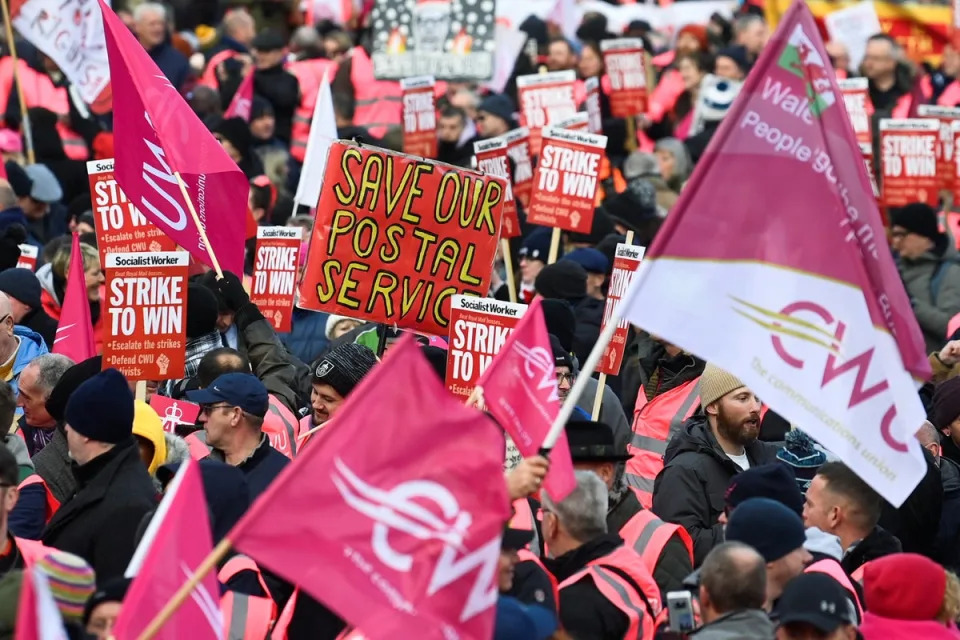
(REUTERS)
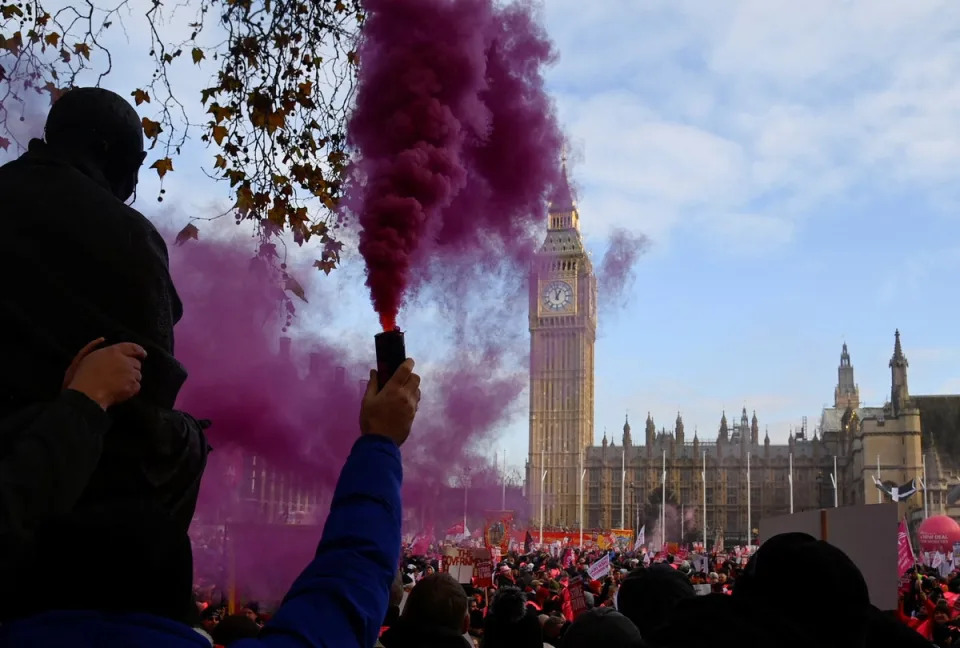
(REUTERS)

(PA)
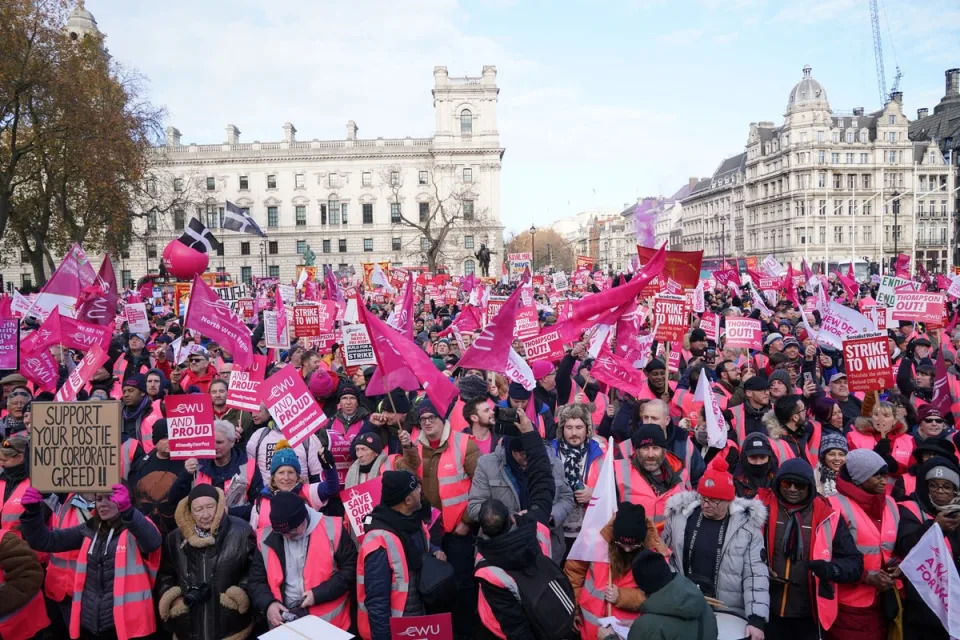
(PA)
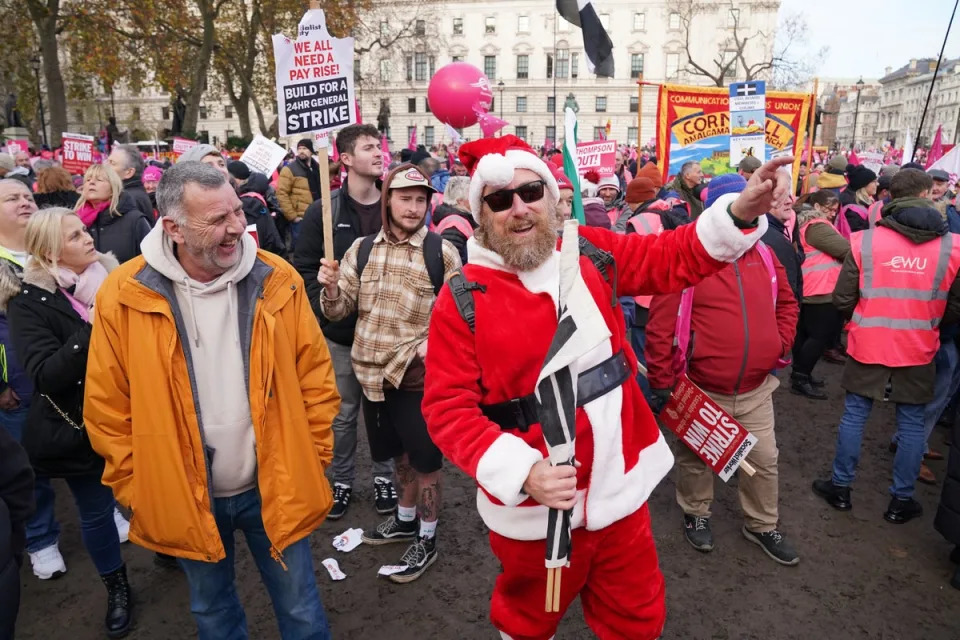
(PA)
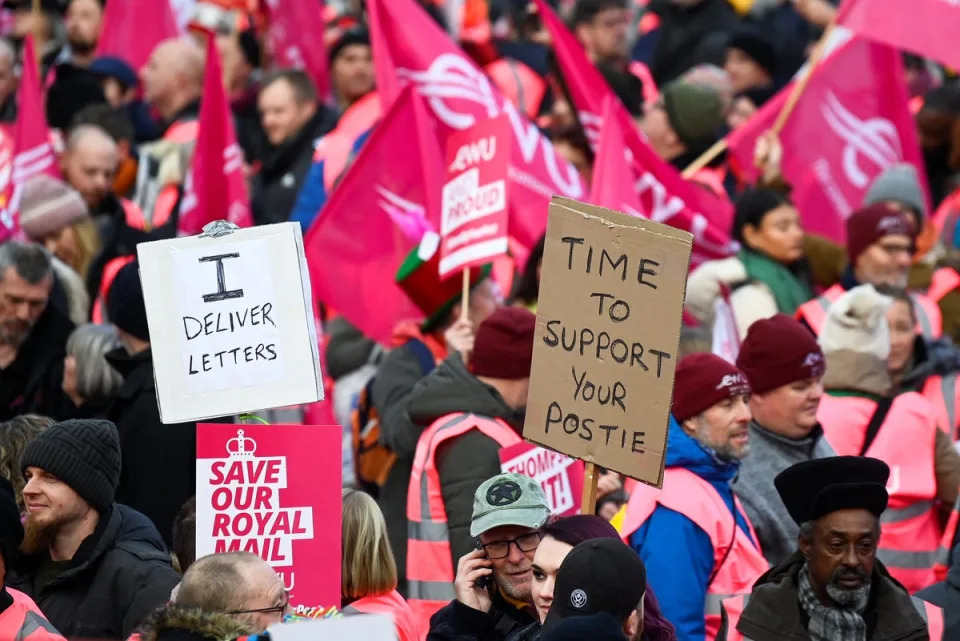
(REUTERS)

(PA)
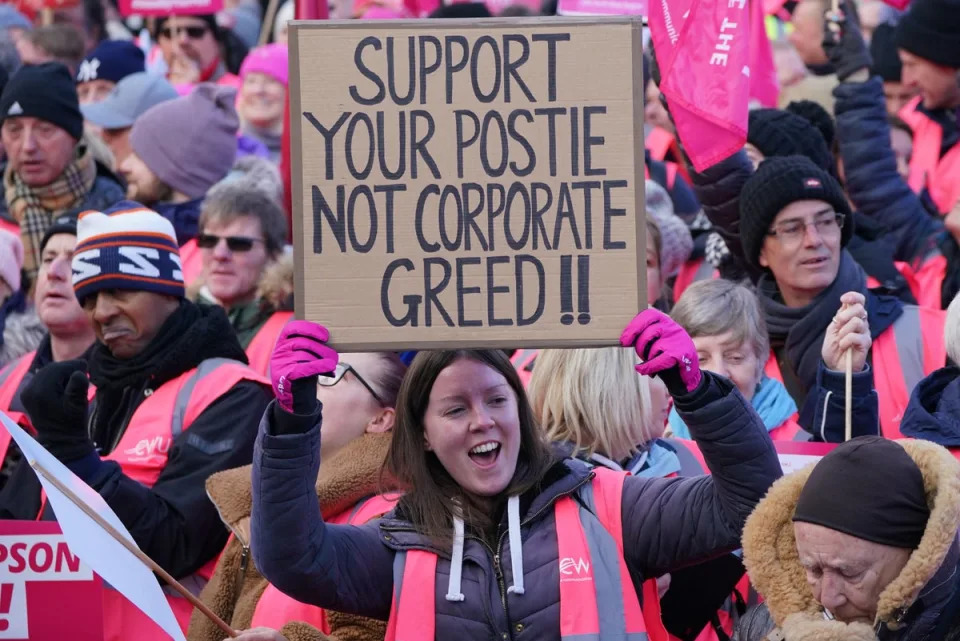
(PA)

(PA)
“That is what authoritarian governments in authoritarian states do. This is — or should be — a free country. In which it is possible — and perfectly legal — to take industrial action. Which is, after all, a fundamental human right.”
Unison general secretary Christina McAnea said: “Ministers should be putting all their energies into solving the NHS dispute, not worsening relations with health workers.
“Unions want to work with the Government to secure a pay deal, but attacking workers makes that much harder.”
No comments:
Post a Comment